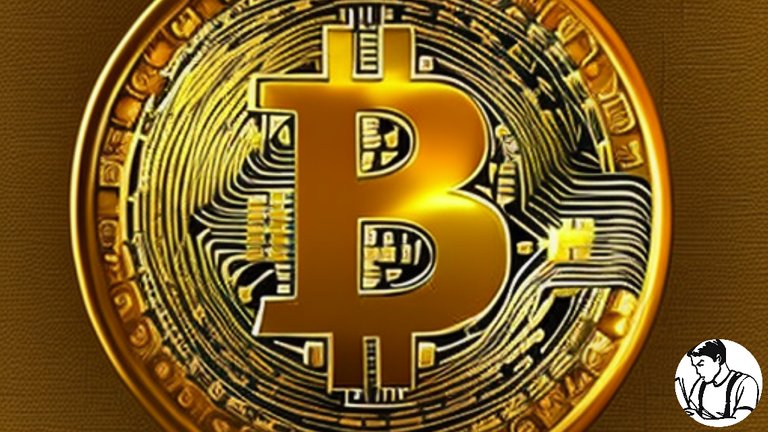
Bitcoin, the world's first decentralized cryptocurrency, has come a long way from its humble beginnings as a mysterious, cryptic creation of an unknown person or group of people known as Satoshi Nakamoto.
Today, Bitcoin is a household name and is arguably widely regarded as one of the most valuable assets in the world with a market cap of $450 billion (at the time of this writing). However, It's a drop in the bucket when compared to gold's market cap which is currently sitting at $12 Trillion according to companies market cap. But why is Bitcoin often referred to as "digital gold"?
Examination Of Digital Gold
The term "digital gold" is often used to describe Bitcoin because of the many similarities it shares with the precious metal. Both Bitcoin and gold have a limited supply, which makes them scarce and valuable. Bitcoin has a maximum supply of 21 million coins, which means that once all the coins are mined, no more will be produced. There's currently a circulating supply of 19 million coins, meaning only 2 million coins are remaining. Think about that for a minute, no more coins will be mined after that. Can you see the FOMO?
Similarly, gold being a physical asset also has a limited supply on Earth, making it a valuable resource. Although rumors has it that alchemist can make more of it.

In addition to their scarcity, both Bitcoin and gold have a long history of being used as a store of value and a hedge against inflation (especially the latter, gold). Throughout history, gold has been used as currency and then as a means of protecting wealth against economic uncertainty. In the same vein, Bitcoin has become a popular alternative to fiat currencies, which are subject to the whims of governments and central banks.
Bitcoin's decentralized nature makes it immune to the influence of any one central authority, giving it a 'level of stability' that other currencies lack.
But perhaps one of the main reasons why Bitcoin is often referred to as "digital gold" is because of its decentralized, borderless nature. Unlike fiat currencies, which are subject to government regulation and can be affected by geopolitical events, Bitcoin can be used anywhere in the world as long as there is an internet connection.
This makes it a truly global asset, accessible to anyone, anywhere. It also means that Bitcoin is not subject to the same restrictions and limitations as traditional currencies, making it a more flexible and accessible form of wealth than even gold itself. Gold has some physical restrictions and limitations such as storage space or it being costly to transfer from one place to another. None of those apply with the digital gold.

Furthermore, Bitcoin's decentralized nature also makes it more secure and resistant to theft and fraud compared to traditional currencies. Transactions made with Bitcoin are recorded on a public ledger called the blockchain, which is maintained by a network of computers around the world. This makes it almost impossible for a single entity to manipulate the currency or steal funds. Even gold doesn't have that, it can easily be forged.
Recently, Bitcoin's growing popularity and increasing mainstream acceptance are also contributing to its status as "digital gold". As more people become familiar with the cryptocurrency and recognize the potential it has, its value is likely to continue to rise.
This has led some institutional and retail investors to view Bitcoin as a valuable asset to hold for the long term, much like how people view gold.
In Conclusion
The term "digital gold" is very fitting to describe Bitcoin because of the similarities it shares with the precious metal. Both of them have a limited supply, are used as a store of value and a hedge against inflation, have a decentralized, borderless nature, and are widely accepted as valuable assets.
Since we're in the process of digitizing precious metals. There are also digital silver, copper, mercury etc. Apart from digital silver which is often equated with Ethereum, Litecoin or Ripple. The rest are still in the process of finding their 'identity'.
As cryptocurrencies continue to gain traction and become more mainstream, it is likely that Bitcoin will continue to be referred to as "digital gold" for many years to come.
All images created via Nightcafe Studio.
Thanks For Reading!
Profile: Young Kedar
Recent Posts;
● Globalization: A Double-Edged Sword
● How Cryptocurrency is Changing the Concept of Money
● The Interconnectivity Between Crypto And Stock Investment
● The Digital Landscape is Changing: Challenger Banks vs. Cryptocurrency
● Artificial Intelligence: Are We Approaching The Tipping Point?
● The Blockchain Revolution: How Close Are We To A Tipping Point?
Dolphin Support: @cryptothesis
Posted Using LeoFinance Beta